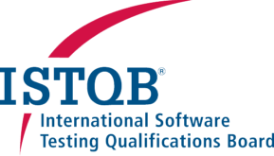 ISTQB® has released two new syllabi for test automation
ISTQB® has released two new syllabi for test automation

Today, 12th June 2024, the ISTQB® has released two new syllabi for test automation: version 2.0 of the updated Certified Tester Advanced Level Test Automation Engineering Syllabus (CTAL-TAE v2.0) and version 1.0 of the new Certified Tester Specialist Test Automation Strategy Syllabus (CT-TAS v1.0) following a successful vote for release at the recent ISTQB® General Assembly meeting in Budapest, Hungary.
The new release of the Advanced Level Test Automation Engineering v2.0 certification is at the core of the ISTQB® Certified Tester scheme; it has been developed to meet today’s approaches to software development and testing at the forefront of the ISTQB’s thinking.
The newly updated Test Automation Engineering Syllabus version 2.0 package includes:
- The ISTQB® Certified Tester Advanced Level Test Automation Engineering Syllabus v2.0
- The CTAL-TAE v2.0 Sample Exam (Questions and Answers - Set A v2.0)
- The Exam Structure and Rules document
- The Accreditation Guidelines document
All CTAL-TAE v2.0 documents are available for download here.
The ISTQB® Glossary has been updated to reflect the release of CTAL-TAE v2.0
Holders of the previous released version of the ISTQB test automation certification, CTAL-TAE/CT-TAE 2016 will remain certified and will not be required to retake the exam but may wish to consider taking the new CTAL-TAE v2.0 to attest to the updated skills covered in this newly updated release.
The sunset dates for the CT-TAE 2016 certification are as follows:
- English syllabus, exams, and accredited training June 12, 2025
- Other language syllabi, exams, and accredited training December 12, 2025
The newly released Test Automation Strategy version 1.0 package include:
- The ISTQB® Certified Tester Specialist Test Automation Strategy Syllabus v1.0
- The CT-TAS v1.0 Sample Exam (Questions and Answers - Set A v1.0)
- The Exam Structure and Rules document
- The Accreditation Guidelines document
All CT-TAS v1.0 documents are available for download here.
The ISTQB® Glossary has been updated to reflect the release of CT-TAS v1.0.
The CT-TAS v1.0 certification is new and will require an examination to become certified.
What does this ISTQB® Test Automation release mean?
ISTQB published a groundbreaking syllabus and corresponding certification in 2016 that helped define a systematic approach to test automation architecture and successful deployment practices across the organization. The newly updated Test Automation Engineering Syllabus, version 2.0, brings additional relevance to account for changes in test tools and approaches to agile software development methods and the adoption of DevOps and CI/CD pipelines. Additionally, a complementary body of knowledge geared more towards implementation strategy has been released as the Test Automation Strategy syllabus, version 1.0, targeted to test engineers and managers overseeing the deployment of test automation for projects across the enterprise. The two syllabi are complementary and offer a comprehensive body of knowledge in test automation. Neither is a prerequisite for the other. However, candidates wishing to sit for either exam must have attained the Certified Tester Foundation Level certificate.
Training course providers will require accreditation of their training materials, in accordance with the ISTQB® Accreditation Process and the Accreditation Guidelines for CTAL-TAE v2.0 and CT-TAS v1.0.
Regarding this exciting dual release, ISQTB® President Klaudia Dussa-Zieger stated:
“Test automation continues to be a highly strategic and enabling technology for software testing making it necessary to expand this body of knowledge for both tactical and strategic considerations into two syllabi—one focusing on engineering and the other on strategy. The structure for each syllabus has been thoroughly reviewed, with each section carefully examined and assessed. The result is a more concise and highly relevant set of documents that focus on the evolving industry needs while supporting individual projects and entire organizations.
Many thanks to Andrew Pollner and the Test Automation Task Force for their tremendous efforts! And congratulations on the successful simultaneous release of two new syllabi on test automation!”
Product Owner of the Test Automation portfolio, Andrew Pollner, stated:
“The release of these two new syllabi on test automation is the culmination of a tireless pursuit and commitment to the science and art of test automation. With a team of highly skilled practitioners and the global reach of ISTQB Member Boards, we’ve worked tirelessly to distill the essence of what it means to be successful when embarking on a journey of test automation. When the initial test automation syllabus was first introduced in 2016, automation was viewed in a more siloed manner. With the advent of Agile and DevOps, test automation needed to adapt and integrate into continuous development and testing processes. The expansion of topics now aligns to the direction of technology in the marketplace.
Thanks to all who have contributed to this syllabus. It was produced by the Test Automation Task Force from the ISTQB® Specialist Working Group:
Graham Bath (Specialist Working Group Chair) Andrew Pollner (Specialist Working Group Vice Chair and Test Automation Task Force Chair), Péter Földházi, Patrick Quilter, Gergely Ágnecz, László Szikszai. Test Automation Task Force reviewers included: Armin Beer, Armin Born, Geza Bujdoso, Renzo Cerquozzi, Jan Giesen, Arnika Hryszko, Kari Kakkonen, Gary Mogyorodi, Chris van Bael, Carsten Weise, Marc-Florian Wendland.
The team thanks Gary Mogyorodi for his technical review and the Member boards for their suggestions and input.
In addition, the Team would like to acknowledge and thank the Work Group leaders and members of the Working Groups for their early and ongoing guidance: Galit Zucker (General Secretary), Matthias Hamburg (Chair, Glossary Working Group), Klaus Skafte (Past Chair, Exam Working Group), and Lovelesh Beeharry (Chair, Marketing Working Group).
Most recent


